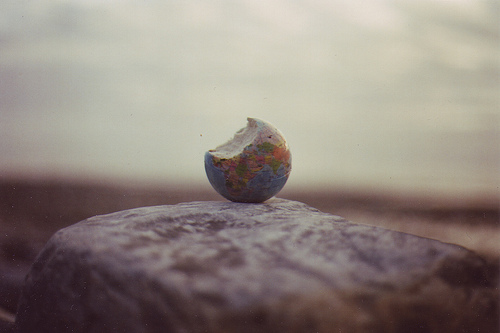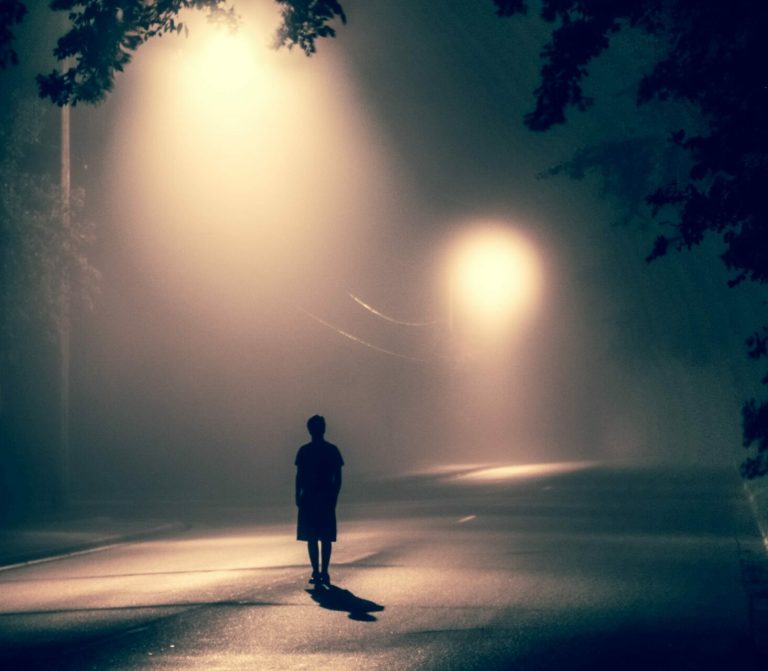The Inevitable Ending You Know Is Coming
As contradictory as this might sound, endings in novels need to seem inevitable without being predictable. When your reader finishes the book , she should feel that this was the only way it could have ended. Everything has led up to this finale, and it just plays out perfectly. This isn’t predictability. You don’t want readers thinking they knew exactly what was going to happen and are bored as they hurriedly flip through the last pages of the book.
Recently I read a couple of award-winning sci-fi novels that were really pretty good until about the last fifty pages. I found myself starting to skim through the inevitable spaceship battles and the endings—to the point that I didn’t really read the last chapters. Such a difference from Orson Scott Card’s masterpiece Ender’s Game, considered one of the all-time greatest sci-fi books written (and I agree!). The surprise twist at the climax and the completely unexpected ending blew me away. Yet, I could say it was the best (and truly only) ending for the book, and entirely unpredictable.
Inevitable but Predictable?
It’s okay for readers to know what is going to happen (boy gets girl; Frodo destroys the ring), but they don’t know how. You want enough surprises and twists that the reader is thrilled, but you don’t want them throwing that book across the room upset that your ending makes no sense.
One writing instructor calls the ending a “debriefing.” I like to think of it as a camera pull-back in a mental way. This is where the protagonist shifts her focus from the small scope of the events in the climax to the larger purview of processing what she just went through, the decision she made, the changes she experienced, and who she is now. It’s as if her gaze is wider and deeper as she looks at her new place in the story with better vision and understanding. There is a sense of an “I see now and I understand” feel.
Reduce to the Bare Essence
I mentioned this line in my last post: “Get in quickly; get out quickly.” There should be a sense of boiling everything down to its purest essence. Every word of dialog, every line of description, should truly count. The end is no place for excessive narration, pontification, explanation. This is where you show a memorable moment with your character, a short but important one. Think of a dramatic play in which the narrating character sums up the story (I’m picturing Hamlet) after all has been said and done. You don’t want to do this exactly—jumping in as the author and summing up the story they just read—but you do want to give the feeling that things are being wrapped up.
In Conundrum, after my protagonist, Lisa, learns a shocking truth (big plot twist/surprise) about her long-dead father, whom she has been trying to learn about throughout the course of the novel, she sits in her living room on New Year’s day (hinting at new beginnings, as she is also, finally, pregnant—another new beginning).
I bring in some of the motifs I’ve been using in the book, phrases and ideas used in important places that hold a lot of meaning for her, so as she reflects on where she is, what she’s learned, how she now feels, and what she hopes for the future, it all plays out in just a few short paragraphs, reprinted below [I’m going to boldface the repeated phrases and motif used since you won’t know what they are]:
A great sigh broke loose from inside me. I had come to the end of my father’s story; I had navigated this convoluted maze and now where did that leave me? What had compelled me, those months ago, to uncover the clues to his death? Some crazy notion that I could help Raff? Where had that come from?
Perhaps my buried memories of my father, a man who had imprinted his goodness and love on my heart so long ago, had nudged me toward truth. Toward a need to vindicate him somehow, clear his name of the false labels slapped upon him: cowardly, suicidal, heartless. I had supposed that if I searched for him, searched hard, I could find him. And I did. At least, I believed I did.
It struck me that I had no idea where my father was buried. In Los Angeles somewhere? Or would his family have buried him in New York? I made a mental note to call my uncle Samuel and ask. I was long overdue to pay my respects. Although, my father seemed more buried in my heart than in some cemetery plot.
Jeremy came into the living room and sat beside me. He looked out the window at the winter morning, at the garden that lay dormant, the rose bushes cut back, leafless, stunted. I gazed at the alders across the street, their spindly bare arms outstretched to the heavens. They seemed to be yearning for spring.
“What a beautiful day,” he said, stroking my hair. “A new year. Full of promise.”
He looked down at my belly and smiled at the life growing inside me. I felt strangely sad and joyous at the same time. And although I felt heavy with my pregnancy, heavy with anticipation and, admittedly, a little fear and worry over what the future held, something lifted off my heart. Some burden, a reprieve of sorts.
For years I had carried around my own poisonous guilt—for my failings as a dutiful daughter, my inability to make my mother happy, my lack as a wife. Even guilt over my miscarriages, as if I had done something wrong, so that I didn’t deserve to have children. And now, after having found my father, Nathan Sitteroff, these self-recriminations were dissolving. I felt light, as if flying.
I looked at Jeremy, the only man I had ever loved, oh so loved, and my heart soared like a helium-filled balloon escaping into the sky. I thought of the man in the restaurant—the man who had spent the better part of his life looking for answers. Looking for truth.
I’m free, he said.
I mouthed the words along with him.
That’s how my book ends. The book begins with that specific conundrum of the man in the restaurant saying he is free, a man who is symbolic of Lisa and this journey of her life that has finally brought her to a place where she, too, feels free. The line about the only man she’s ever loved “oh so loved” is an exact quote from the end of chapter one. When you can pull bits like this from your opening scene that are thematic to your story, they bring the novel around full circle and give the reader a sense of completion. One thing to note: Lisa started off with one visible goal—to uncover the mystery surrounding her father’s death, but in the end, she arrived at a completely unexpected place. You may decide your character won’t reach her goal at all, but if not, there must be something invaluable she learns through the effort and makes the journey (and the ending of your novel) inevitable but not predictable.
This week, if your novel is done, think about a motif or line from the first chapter that speaks to your theme (or put one in) and see how you can work it into your ending. Distill your ending down to just a few paragraphs, and have your protagonist reflect on how she’s now looking at the world with new sight, after what she’s gone through. Take out every unnecessary word, any distracting description, that is not locking in on that moment. Then share in the comments your thoughts.












Succinct!
There is definitely a feeling of ‘winding down’ in the final chapter – sort of the literary equivalent of waving goodbye, closing a door or – as you said – the camera pulling back.
In ‘A Construct of Angels’ I tried very hard to include as many elements from the beginning of the story as I could, tying all the threads together, as it were.
The (artificial) star in the sky that everyone hated and feared was now a symbol of hope. The chill in the air became a warm breeze. The character who had violently fallen to Earth was now at peace and my Main Character, after all her misfortune, fleeing from authority and injuries was healing nicely and was offered her job back (she declines).
In this, the final couple of paragraphs, Sara the injured paramedic is on the mend and is beeing wheeled out of the hospital;
I was startled by the sudden warmth that hit us, despite the onset of early evening.
Summer’s back…
I smiled and a long-overdue chuckle escaped from my throat.
A shimmering point light that had barely cleared the Eastern horizon caught my eye. I felt an inexplicable urge to smile at it.
“It’s the Black Star,” Michael murmured in my ear. My tummy fluttered at the sound of his smooth tones. I turned to look at him and found that our faces were only inches apart. My eager lips twitched and I had to fight the urge to plant a kiss on him there and then.
“What happened to it?” I asked, staring deep into Michael’s soft brown eyes. I noted with some small disappointment that they no longer held gold flecks. He held my gaze a moment longer before pulling back. I blinked, then turned to look back at the rising star. It was brighter than Venus and burning steadily in a cloudless pastel-blue sky. I tensed, waiting for the hated rhythm to fill my head. But my mind was silent; calm.
“It’s burning. The Realm left it up there after the equinox as a symbol of hope.”
“How long – ?” I began.
“Four more days,” he answered without hesitation. “Then it’ll burn out and the sky will return to normal.”
Normal… I let my gaze drop to the rows of ambulances that filled the hospital’s drop-off area. It looked like every ambulance in Yorkshire was standing before me, lined up like my own personal guard of honour.
I wondered if anything would ever feel normal again.
– end –
Hi Susanne,
Wow, I love this whole idea–
“I bring in some of the motifs I’ve been using in the book, phrases and ideas used in important places that hold a lot of meaning for her, so as she reflects on where she is, what she’s learned, how she now feels, and what she hopes for the future, it all plays out in just a few short paragraphs, and hope to be able to add it to my wip”
I hope I can incorporate some of this in my current wip. It sounds like real literature!
Also, Andrew–beautiful writing.
Michelle
Very good Miss C S. I’m learning that the ending is as important as the beginning. Thanks for your efforts to educate we authors!
James M. Copeland
Great piece 🙂
Each time you write one of these I think yes, that’s what I do.
And I do, but without it being a deliberate action – it just seems right and because it’s what my favourite authors do, I do it too.
For me, the beauty of the advice you give is that it makes me consciously aware of what I am doing, and I can go back and review my work with an analytical eye to see if I’ve done it as best as I can, or if there is some other level I can reach by just tweaking a few details here and there.
Many thanks for the education.
Deborah
Susanne,
I have enjoyed this post about endings. The replies are excellent and have made me revaluate both of my completed manuscript endings. However, several authors I have met have given me conflicted opinions on two of my three book trilogy. Some have told me each book should end with a conclusion or finality and not “hook” the reader into the next book. I realize each book should keep the reader’s interest, but what is the normal segue for ending each book of a trilogy? Should it hint at the next?
Usually with sequels that are continuing stories you do leave some things hanging and some hints as to what is to come. I do that in Time Sniffers and my new fantasy book (#6) because it leads into the final book. You just want to make sure the main plot of that particular book is complete and resolved.
Wow, you really got me thinking. Thank you for that.
I have stated it so many times to others when I speak of or pitch my story, but I don’t actually say it. So, I am going to go back and find a place for my character to say what she is doing in this God forsaken country, what she is looking for.
I always worry that my endings are too predictable but I often think that of course it’s going to seem like that to me because I’m the one writing them. I need another person to read my book without knowing the storyline and then I think that’s the only way you can truly know if the ending is predictable. Maybe if I wrote the story without doing any pre-planning I wouldn’t have this problem but I am not one of those writers.
Very much on the nail! Thanks for sharing.
I’m reminded of TS Elliot’s famous words: “We shall not cease from exploration, and the end of all our exploring will be to
arrive where we started and know the place for the first time.”
Yes, BTW I use that quote near the end of my book The Wolf of Tebron!
The great writer, Jessamine West used to say the endings had to have a “come to realize” for the protagonist. I see novels these days that do not have that component. I’m old enough to enjoy an ending like that.